Written by Alysa (she/her), Kinesiology student
Choosing your university program is a big decision. What you may not realize is that once you get started, you’ll have even more choices to further fine-tune your degree.
In Kinesiology, you have lots of flexibility to personalize your program as you go along.
How do you customize a university degree?
Minors and specializations are a great way to get a little extra out of your degree – they give you the opportunity to customize based on your interests and offer a menu of courses to explore. Kinesiology a la carte, anyone?
As a Kinesiology student, you can pursue a minor or specialization within your field, or you can explore the long list of minors offered across campus. We’ll stick to Kinesiology for this article.
Here are the customization options available within Kinesiology.
- Ergonomics and Injury Prevention minor
- Human Nutrition minor
- Medical Physiology minor
- Neuroscience minor
- Rehabilitation Sciences specialization
What is a minor?
A minor is a group of ten courses in a particular subject and can be directly related to your field or a way to explore new interests!
What is a specialization?
Specializations are only available within a program and require four to seven courses that are closely related to your major.

Is taking a minor or specialization right for you?
The first thing to consider before pursuing a minor or specialization is figuring out if, or how, it will benefit you. Ask yourself these questions.
- Is there a specific topic you want to explore in depth?
- Do you want a structured outline to help guide what courses you’ll take?
- Is there a minor that can help you achieve your career goals or get the prerequisites you need for professional or graduate school?
If you answered yes to any of these questions, then you’re on the right track!
How and when to choose your minor or specialization
After your first year or two in Kinesiology, you’ll likely have some favourite topics that align nicely with a minor or specialization. Personally, I found myself enjoying the biology-based courses way more than the exercise-based ones. This made it clear that I would prefer the Medical Physiology minor over the Rehabilitation Sciences specialization.
Once you’ve narrowed your choices, connect with an academic advisor. Your advisor can help you explore your options and plan your courses.
Hear from the experts
To help you learn more, I went to a few of my classmates to get the inside scoop. We can’t go through them all, so I’ll cover some of the popular options including the Rehabilitation Sciences specialization and the Medical Physiology and Neuroscience minors.
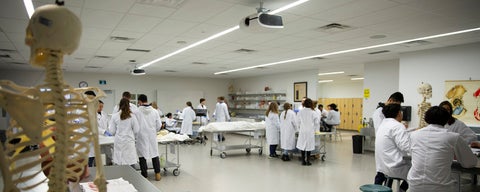
Rehabilitation Sciences specialization
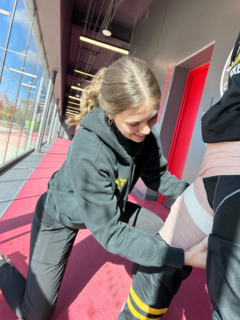
Kailyn (she/her), fourth-year Kinesiology student
Career goals: Chiropractor or physiotherapist
Specialization: Rehabilitation Sciences
What Kailyn had to say:
“This specialization is helping me by giving me a preview into my desired career (physiotherapy or chiropractic). It’s giving me the steppingstones to success for when I get there.”
About the Rehabilitation Sciences specialization
If you’re thinking about a career in rehabilitation (think occupational therapy, physiotherapy, athletic therapy, etc.), the Rehabilitation Sciences specialization could be a great option for you! You’ll explore topics like neurological disorders, injury management, balance, and exercise. The required courses span the fields of neuroscience, biomechanics and physiology.
Sample courses:
Medical Physiology minor
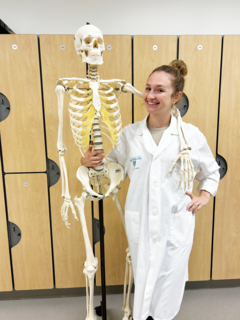
Mia (she/her), recent Kinesiology graduate
Career goal: Physiotherapy
Minor: Medical Physiology
What Mia had to say:
“I’m heading into physiotherapy school in the fall. The recruitment team said this minor stood out to them because it is so well rounded. It set me up with a lot of background knowledge for physio school.”
About the Medical Physiology minor
The Medical Physiology minor spans courses from multiple faculties and has a heavy science focus with biology and kinesiology courses. It covers areas like aging, physiology, ethics, and neuropsychology. This is a great minor for students who plan to pursue health careers that require further studies after their undergrad (e.g. physiotherapy, medicine, etc.).
Popular courses:
Neuroscience minor
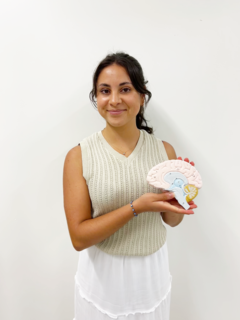
Alana (she/her), third-year Kinesiology student
Career goal: To be determined
Minor: Neuroscience
What Alana had to say:
“I don’t really have a career in mind, I don’t want to fix myself to one thing. I’m really interested in neuroscience and will likely pursue a masters. Minoring is a good way for me to explore what exactly I’d like to investigate within the field.”
About the Neuroscience minor
The Neuroscience Minor is a newer minor that covers topics in neurobiology, health, kinesiology, and psychology. This is a good option if you want to explore the field of neuroscience and are thinking about a career or graduate school in this field.
Popular courses:
More from my fellow Kin students:
Why did you choose to do a minor?
What has been your favourite class?
What advice do you have for those thinking about a minor?
Insider insights
Contrary to how it may seem, it can be quite easy to fit a minor into your Kinesiology degree and plan your courses. In fact, I chose to do a minor to give myself a structured inventory of courses so I wouldn’t get overwhelmed while choosing my classes.
To make some of your decisions a little easier, take it from the upper years! We’ll always have lots to say about our experiences and are happy to give our insight.
Make the most of your degree
I’ve highlighted just a sample of the many minors you can explore as a student in Kinesiology at Waterloo. A great thing about this program is the amount of flexibility you have to maximize your degree, expand your learning, explore your interests, and prepare for your future career.
Related articles
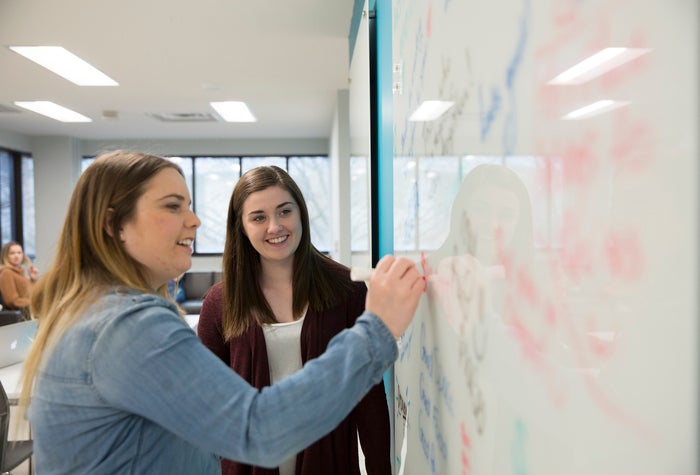
How to apply to a recreation major
You’ve discovered your dream major in recreation and now you’re ready to apply. Here’s what you need to know about the process.

Taking a kinesiology lab tour?
If you’re thinking about a kinesiology or human kinetics program, taking a tour of the labs and facilities at the schools you’re considering is a great way to find out if they’re right for you.
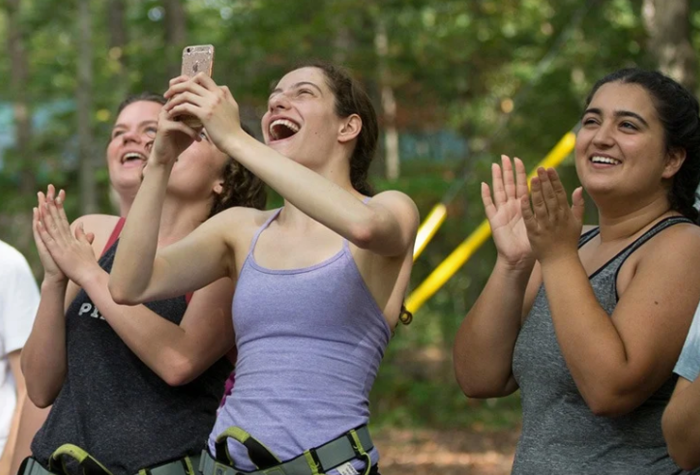
Seven ways to know if Recreation at Waterloo is for you
Wonder if Recreation at Waterloo is the right path for you? Read to find out!

